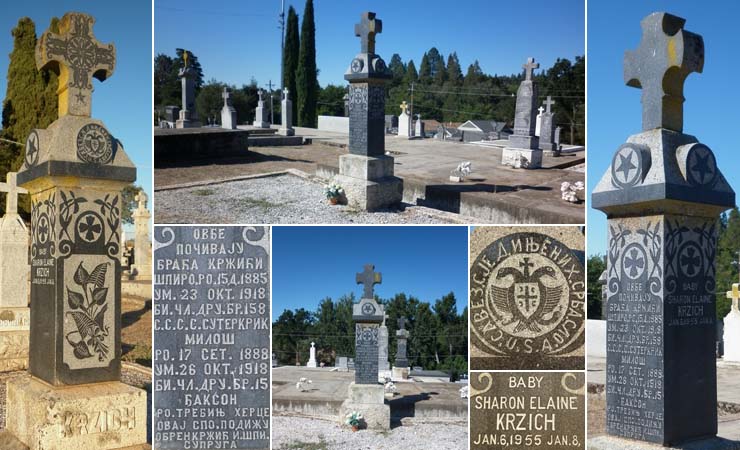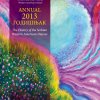Spiro 1885 - 1918, Milosh 1888 - 1918, Baby Sharon Elaine 1955
ОВЂЕ
ПОЧИВАЈУ
БРАЋА КРЖИЋИ
ШПИРО РО. 15 Д. 1885
УМ. 23 ОКТ. 1918
БИ. ЧЛ. ДРУ. БР. 158
С.С.С.С. СУТЕР КРИК
МИЛОШ
РО. 17 СЕП. 1888
УМ. 26 ОКТ. 1918
БИ. ЧЛ. ДРУ. БР. 15
ЂАКСОН
РО. ТРЕБИЊЕ ХЕРЦЕ
ОВАЈ СПО. ПОДИЖУ
ОБРЕН КРЖИЋ И.ШПИ.
СУПРУГА
BABY
SHARON ELAINE
KRZICH
JAN. 6, 1955 JAN. 8,





